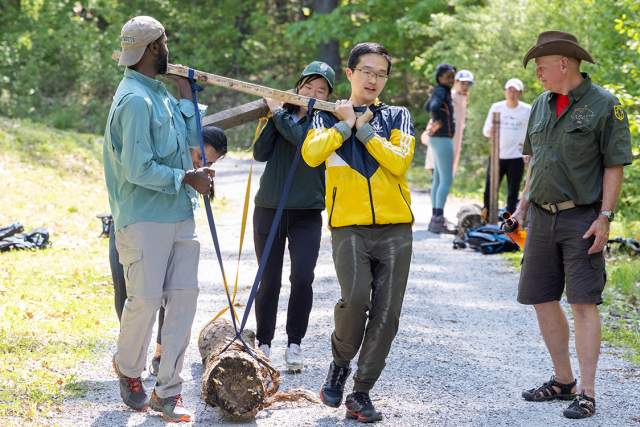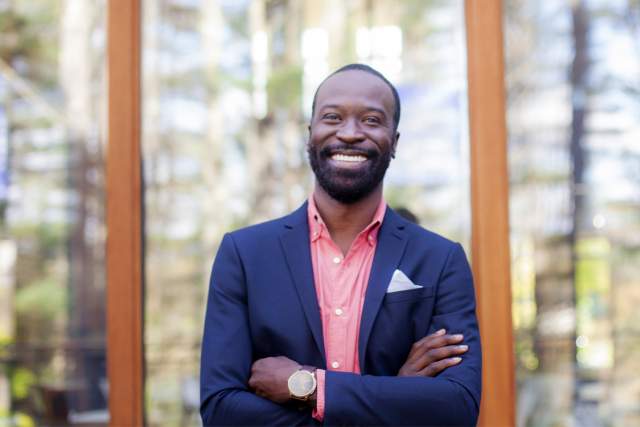John Reed D’75, T’79, an executive coach who recently published a book on coaching, notes that he’s seen a noticeable shift in how Tuck students who take advantage of the program make decisions. “The people who are participating in coaching are becoming more aware of paying attention to what actually energizes them and is intrinsically satisfying to them, as well as extrinsically rewarding,” he explains.
Coaching sessions are carefully timed to maximize their impact, occurring during the Winter Term and spaced between the Managing People core course in the Summer Term and Managing Organizations in the Spring Term.
Going back to school as a professional can cause students to feel pressured to be a certain way, and through the coaching process students become much more attuned with who they are and what they do and don’t want from their careers.
—Belinda Chiu D’98
“Students have had a term to get settled in and they’re about to take on first year projects, so the coaching fits well within the cadence of the program,” explains Chiu, who founded her own coaching consulting firm in 2009 called Hummingbird. “Going back to school as a professional can cause students to feel pressured to be a certain way, and through the coaching process students become much more attuned with who they are and what they do and don’t want from their careers.”
That lesson came through loud and clear for Kendall. “Before my coaching, I was trying to model my leadership after other successful leaders,” he says. “While leadership lessons from others can be helpful, they are by no means a replacement for thinking critically about how you want to lead and how you specifically can get others to follow you.”
According to Reed, Kendall’s outlook represents a broader shift in how today’s MBA students think about their futures. “There’s a little less of a herd mentality than there was, in that people are able to step back and ask what leadership really looks like, and what their assets and development areas as a leader are.” That flexible perspective, he notes, is essential for graduates in today’s rapidly changing economy.
“In many ways and on multiple levels, the coaching program is directly aligned with Tuck’s core values, as it provides a personal, connected, and hopefully transformative opportunity for participants to assess, plan, and reflect on their leadership trajectory,” says McNulty.
Kendall, who says the coaching was the most transformative part of his Tuck experience, urges
his fellow students to take advantage of the program. But, he reminds his fellow students, “Like many things in life, you will only get out as much as you put in. If you are willing to dig deep within yourself and share with your coach, this is a super beneficial part of the Tuck experience.”

